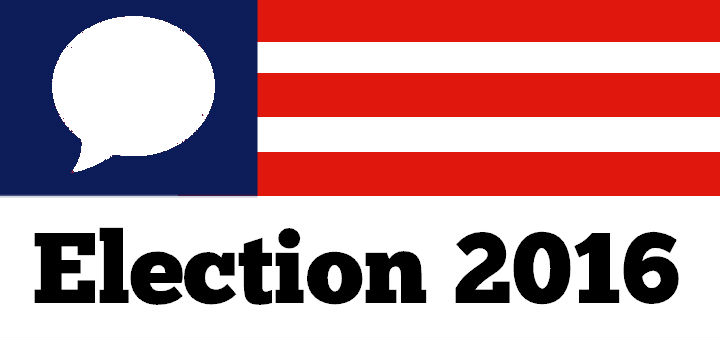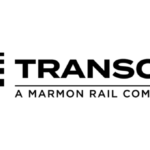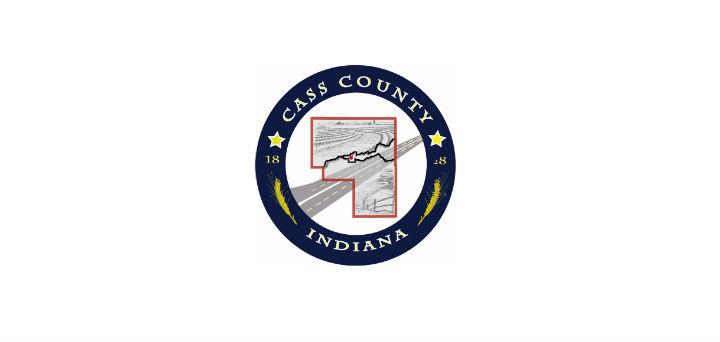Last Updated on September 26, 2016 by cassnetwork
The following information regarding the 2016 debates by candidates for U.S. Senate, Indiana Governor and President and Vice President of the United States has been compiled from press releases from the Commission on Presidential Debates and the Indiana Debate Commission and will be updated as new information is released.
Use these links to jump to a specific topic:
U.S. Senate Indiana Governor President and Vice President of the United States
Sept. 27 – Indiana Gubernatorial debate
Oct. 3 – Indiana Gubernatorial debate
Oct. 4 – Vice presidential debate
Oct. 9 – Presidential debate
Oct. 18 – US Senate debate
Oct. 19 – Presidential Debate
Oct. 25 – Indiana Gubernatorial Debate
[/column]
[column size=”two-third” last=”true”] U.S. SENATE
The Democratic, Republican and Libertarian candidates for U.S. senator in Indiana have agreed to meet Oct. 18 in a televised debate organized by the Indiana Debate Commission.
The debate among Democrat Evan Bayh, Republican Todd Young and Libertarian Lucy Brenton will be broadcast live 7-8 p.m. EDT from a studio of public television station WFYI in Indianapolis.
Members of the public can submit questions they would put to the candidates. Questions can be submitted to the IDC through its website at http://indianadebatecommission.com. The debate commission will select questions on a variety of topics for use in the debates.
The Indiana Debate Commission is working to plan a second debate and those details will be announced soon.
INDIANA GOVERNOR
INDIANAPOLIS – The Democratic, Republican and Libertarian candidates for governor of Indiana have agreed to debate three times in televised debates organized by the Indiana Debate Commission.
Participating will be Democrat John Gregg, Republican Eric Holcomb and Libertarian Rex Bell.
The first debate, previously tentatively scheduled, will be Sept. 27 at Lawrence North High School in Indianapolis. The second will be Oct. 3 in Ransburg Auditorium at the University of Indianapolis and the third Oct. 25 at the University of Southern Indiana in Evansville.
The Sept. 27 debate, in the style of a town hall meeting, will be 10:30 a.m. to 11:30 a.m. EDT. It is being held in the morning because it is designed partly as an educational lesson for students throughout Indiana in partnership with Indiana Kids’ Election, a program sponsored by the Indiana secretary of state, Indiana Department of Education and Indiana State Bar Association. It will be webcast live by public television station WFYI to schools, and the webcast also will be made available to television stations and news organizations for viewing by the public live. In addition, it will be offered to television stations for broadcast later.
The second and third debates will be made available to television stations for broadcasting live 7 p.m. to 8 p.m. Eastern time. The IDC’s broadcast partner for the Oct. 3 debate is WIPB, the public television station at Ball State University in Muncie. The broadcast partner for the Oct. 25 debate is WFIE, the NBC affiliate in Evansville.
“We are thrilled to be able to make the candidates available to the public so that voters can learn the candidates’ vision for Indiana firsthand,” said Dan Byron, president of the debate commission. “Our motto since our organization’s founding has been ‘Putting Voters First,’ and that is what we are doing with these debates.”
Members of the public can submit questions they would put to the candidates. Questions can be submitted to the IDC through its website. From the submitted questions, the debate commission will select questions on a variety of topics for use in the debates.
The audience at the Sept. 27 debate will be composed entirely of high school students, teachers and school administrators who will hear the candidates’ positions primarily on educational issues, with some questions posed by students. There are no tickets for the general public. University of Indianapolis assistant professor of political science Laura Merrifield Albright will moderate.
The Oct. 3 debate will focus on the topics of jobs and the economy, with John Ketzenberger, president of the Indiana Fiscal Policy Institute, moderating. Tickets, which are free, are available at the University of Indianapolis at http://uindy.edu/debate2016. Those wanting to obtain tickets will need to establish an online account at the website. Tickets are limited to four per person.
Topics of the Oct. 25 debate will focus on health and social issues, with Mizell Stewart III, vice president of news operations for Gannett and USA Today Network, president of the American Society of News Editors and former editor of the Evansville Courier & Press. Ticketing information for that debate will be announced soon.
PRESIDENT AND VICE PRESIDENT OF THE UNITED STATES
The nonpartisan, nonprofit Commission on Presidential Debates (CPD) will sponsor three presidential and one vice presidential general election debates this fall.
The first presidential debate will be September 26, 2016 at Hofstra University, Hempstead, NY.
Lester Holt, anchor, NBC Nightly News, will be the moderator of the first 2016 presidential debate and has selected the topics for that debate.
Subject to possible changes because of news developments, the topics for the September 26 debate are as follows, not necessarily to be brought up in this order:
America’s Direction
Achieving Prosperity
Securing America
The format calls for six 15-minute time segments. Two 15-minute segments will focus on each of the topics listed above.
All debates start at 9 p.m. ET and run for 90 minutes without commercial interruption.
The moderator will open each segment with a question, after which each candidate will have two minutes to respond. Candidates will then have an opportunity to respond to each other. The moderator will use the balance of the time in the segment for a deeper discussion of the topic.
A vice presidential debate will be held October 4, 2016 at Longwood University, Farmville, VA. The moderator will be Elaine Quijano, Anchor, CBSN and Correspondent, CBS News
The debate will be divided into nine time segments of approximately 10 minutes each. The moderator will ask an opening question, after which each candidate will have two minutes to respond. The moderator will use the balance of the time in the segment for a deeper discussion of the topic.
The second presidential debate will be October 9, 2016 at Washington University in St. Louis, St. Louis, MO. The moderators will be Martha Raddatz, Chief Global Affairs Correspondent and Co-Anchor of “This Week,” ABC and Anderson Cooper, Anchor, CNN.
The second presidential debate will take the form of a town meeting, in which half of the questions will be posed directly by citizen participants and the other half will be posed by the moderator based on topics of broad public interest as reflected in social media and other sources. The candidates will have two minutes to respond and there will be an additional minute for the moderator to facilitate further discussion. The town meeting participants will be uncommitted voters selected by the Gallup Organization.
The third presidential debate will be October 19, 2016 at University of Nevada-Las Vegas, Las Vegas, NV. The moderator will be Chris Wallace, Anchor, Fox News Sunday
The format for the debate will be identical to the first presidential debate.
As always, the moderators alone will select the questions to be asked, which are not known to the CPD or to the candidates. The moderators will have the ability both to extend the segments and to ensure that the candidates have equal speaking time. While the focus will properly be on the candidates, the moderator will regulate the conversation so that thoughtful and substantive exchanges occur. The CPD is in discussion with technology and civic groups that will provide data to the moderators to assist them in identifying the subjects that are most important to the public.
Steve Scully, Senior Executive Producer, White House and Political Editor for C-SPAN Networks, will serve as backup moderator for all the debates.
This year’s debates will build on the successful 2012 debate formats which introduced longer segments, allowing the candidates to focus on critical issues.
“The CPD has a simple mission, to ensure that presidential debates help the public learn about the positions of the leading candidates for president and vice president,” CPD Co-Chairs Frank J. Fahrenkopf, Jr. and Michael D. McCurry said. “These formats will allow an in-depth exploration of the major topics in this year’s election.”
In the fall of 2015, the CPD announced the dates and venues and its 2016 Nonpartisan Candidate Selection Criteria. Under the criteria, in addition to being constitutionally eligible, candidates must:
- Appear on a sufficient number of state ballots to have a mathematical chance of winning a majority vote in the Electoral College.
- Have a level of support of at least 15 percent of the national electorate as determined by five selected national public opinion polling organizations, using the average of those organizations’ most recently publicly-reported results at the time of the determination.
In September, the CPD will announce an unprecedented effort to engage the American public in substantive conversations before, between and after the debates. The increased use of technology to consume news presents an opportunity to amplify and enhance the debates. Over the last two years, the CPD has met with more than 40 technology, academic and media organizations to discuss these trends and to identify best practices to engage the electorate, particularly young people, in the political conversation. Some of these initiatives are already underway, such as College Debate 2016, which is building a social conversation among students on college campuses across the country, and Join the Debates, a partnership to help teachers generate discussion in the classroom.
“The public would like to take part in a civil discussion, both online and in-person,” McCurry and Fahrenkopf said. “Our goal is to make the tools available so that the debates can reach all Americans, particularly those who will be voting for the first time.”
The CPD has collaborated with technology, academic and media organizations to engage the American public in substantive conversations before, during and after the debates.
Before the Debate:
Facebook and Google will be providing data to the moderators in the weeks leading up to the debates on what people are searching and saying about the election, the candidates, and the issues. For the town hall debate, Facebook will be working with the moderators to help source questions for the candidates. Other technology platforms will be engaged in this effort as well including Google, #CollegeDebate16, and many other social media grassroots organizations.
PBS NewsHour together with technology partner Microsoft have created an interactive, civic education site that allows users to access every general election debate since 1960, screen entire debates or debate highlights and track how candidates have addressed specific issues in the debates over the years. Users can react to the debates and compare their responses with others through a unique interactive experience. (WatchTheDebates.org)
During the Debate:
Facebook, the exclusive social media sponsor for the first and third presidential debates, will be on site at the debate host universities. Members of the media, students, and the campus community will be using Facebook Live to broadcast and show what is happening at the debate site. People on Facebook in the U.S. and around the world will be able to watch these videos live, ask questions and comment with their reactions. Facebook will also have an interactive touch screen to show the conversation on Facebook about the candidates and the issues.
Snapchat will be covering each debate on-site via a “Live Story.” These Live Stories will allow users on Snapchat to experience the debates from the many different perspectives of students from the debate host universities, volunteers, media and many others. These compilations of Snaps are designed to encourage the conversation long after each debate is over.
Viewers will also be able to watch live streams of the debates. Some of the websites and platforms that will feature debate live streams are: ABC News, Buzzfeed News, CBS News, CNN, C-SPAN, The Daily Caller, Facebook, Fox News, Hulu, Huffington Post, NBC, PBS, Politico, Telemundo, The Wall Street Journal, Twitter, Univision, Yahoo, YouTube.
Between/After the Debates:
MIT Media Lab’s Electome Project will be analyzing Twitter conversations about the election and will be offering a web-based dashboard in the debate site media filing centers that journalists can use to track and visualize how these conversations are changing before, during and after each debate. (electome.org)
The Social Media Analytic Command Center at Illinois State University will be examining the debates through public conversations from social media outlets, popular websites, and major blogs from eight different states. On their website and social media accounts, SMACC researchers will be displaying these social media conversations in dynamic charts, graphs, and other visualizations. (communication.illinoisstate.edu/tours/smacc.shtml)
Voter Education Partners:
AARP is hosting expert panel discussions at all four host sites on the future of Social Security. Also through their “Take A Stand” initiative, AARP is engaging thousands of volunteers across the nation and using social media, advertising and outreach to national and local media to urge the candidates to discuss Social Security. (2016takeastand.org)
CSPAN’s Campaign 2016 Bus will be on each campus to engage students, educators, and the community on their resources through on-board multimedia technology. Using interactive exhibits, visitors will learn about the public affairs network’s in-depth coverage of the U.S. Congress, White House, federal courts, and its signature political program, “Road to the White House,” which provides access to all of CSPAN’s Campaign 2016 programming. Additionally, C-SPAN will be gathering visitor’s responses to this year’s election to share via social media as part of #cspanvoices and “Voices from the Road.”(c-span.org)
Dominican University of California is leading #CollegeDebate16, a national nonpartisan campaign to empower young voters to identify issues and engage peers in the presidential election. In June and September 2016, over 150 student delegates from all fifty states and DC gathered at Dominican University and developed a platform of issues they would like the presidential candidates to address in the upcoming debates. (collegedebate16.org)
Join the Debates (JTD) is an initiative designed and led by Explo in partnership with PBS Education and the National Governors Association. This fall, middle, high school, and college students are engaging their peers in substantive and civil conversation on issues important to the U.S. presidential debates and election. Learning to engage with others who think differently is a skill that requires practice to master. Join the Debates provides curriculum, guidance, and discussion topics. JTD highlights that listening, participation, and respect are key elements for responsible citizenship. (jointhedebates.org)
In addition to Join the Debates, the National Governors Association’s States and the Debates program will help governors deliver civics and voter education initiatives, focusing on issues that are important to states in the 2016 election. (nga.org/cms/statesandthedebates)
Debate Host Universities:
The four debate host universities play an important role by not only hosting the debates, but also engaging the students and the surrounding community in substantive conversations. This cycle there will be more than 75 courses on the four debate site campuses incorporating the presidential debates into the curriculum; more than 100 speakers will come to the campuses; and over 200 debate-related events will be hosted, for both students and the public. More information about these events are available on the debate host university’s websites, sample events include:
Hofstra University is hosting a Viewer’s Guide to Televised Debates, which will offer tips for viewing the debate critically and provide a guide how to be media literate while watching the presidential debates. (hofstra.edu/Debate).
Longwood University is hosting a 2016 Student Citizenship Summit, where several hundred secondary school students will come from around the region to learn how the democratic process has brought about meaningful change in American history. (debate.longwood.edu)
Washington University in St. Louis and the Gephart Institute will offer students the opportunity to participate in a civic dialogue after each of the debates, encouraging them to engage in a respectful discussion relating to the election. (debate.wustl.edu)
University of Nevada, Las Vegas will host a group of over fifty international delegates, in an International Debate Study Mission, to help them understand what goes into hosting a presidential debate. (unlv.edu/2016debate)
For more information about the CPD and voter education partners, visit debates.org. Voter education partners are solely responsible for the content of their events and projects.
Commission on Presidential Debates: Twitter initiative, including hashtags, added to 2016 debates
The non-partisan Commission on Presidential Debates has worked hard to bring social media and technology platforms to the 2016 debates in an effort to expand their reach and educational value. Today, the CPD said that Twitter will join this effort with an initiative designed to encourage discussion and engagement around the 2016 presidential and vice presidential debates.
Beginning Sept. 22, users Tweeting with either official debate hashtag – #debates or #debates2016 – will see a unique new Twitter emoji icon appear in their tweets. Twitter will also provide an analysis of recent trends in election-related discussion on Twitter and will curate questions from users related to announced debate topics for inclusion at the moderators’ discretion.
[/column]





